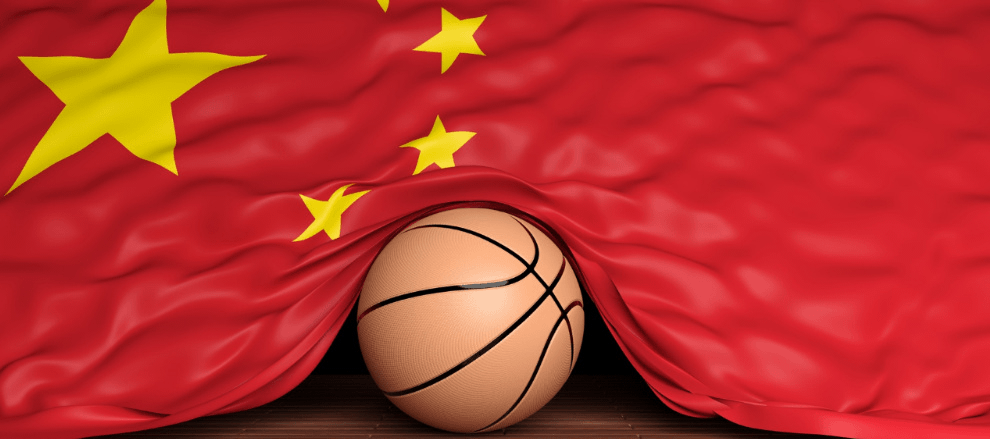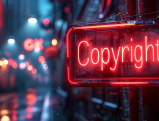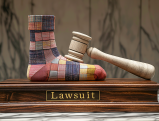
Former NBA superstar Michael Jordan becomes the latest “victim” of the Chinese intellectual property regime and is headed to court in a trademark dispute.
by Jonathan Schmig
May 18, 2015
Michael Jordan has become the latest trademark “victim” of the Chinese intellectual property regime. The next stop for the former Chicago Bulls superstar and current Charlotte Hornets owner is China’s supreme court, in an appeal of an adverse decision over a trademark dispute with a local Chinese company.
In 2012, Michael Jordan sued Qiaodan Sports, based on Fujian, alleging that Qiaodan had built their brand around Jordan without his permission. In 2013, though, Qiaodan reportedly sued Jordan right back for damaging its reputation. Qiaodan further demanded compensation in the sum of $8 million.
Then in early 2015, a Chinese lower court held in favor of Qiaodan over the trademark issue. Just recently, that decision was affirmed by the Beijing Municipal High People’s Court. Jordan’s representatives have indicated that they intend to appeal to the supreme court over the issue, even while another issue (over naming rights) is still ongoing.
Because of uniqueness of the Chinese language (which is character-based, not alphabet-based), proper nouns often need some sort of rough transliteration when making the transfer over to China. While some companies are lucky enough to simply translate their name (“Apple” for instance, or “Facebook”), most are more complicated. Hyundai in China is referred to as “xiandai,” because in Chinese that kind of sounds like “Hyundai.” Starbucks is “xingbake,” because “xing” means “star” and “ba-ke” roughly sounds like “bucks.”
The same has happened, evidently, with Michael Jordan. The commonly accepted transliteration of Jordan’s surname is “Qiaodan” (the “q” is pronounced a little like a “ch” or a “j”). The local firm not only used that name, but also used the number “23” in building its brand. Given the context of China’s basketball-loving culture, it’s not hard to understand why Jordan might justifiably believe that the Chinese company is inappropriately profiting off of his name and goodwill, or even implying some sort of association.
The People’s Republic is no stranger to controversial IP disputes. Foreigners (especially the U.S.) have been complaining for decades about China’s lackluster enforcement of IP rights. And every step of the way, China has pledged to ramp it up. The country’s main trademark law was enacted in 1982, and that law has since undergone several revisions and amendments, including most recently in 2014. The laws themselves have (at least since the ‘80s) more or less been adequate. The exception everyone seems to take with the PRC’s trademark and patent and copyright clashes is more that the enforcement is sloppy and careless, that the laws are inconsistently applied, and that domestic firms receive unfairly favorable treatment.
To varying degrees, these allegations are founded in the frustrations and hard-learned lessons many foreign companies have had to endure in trying to break into the Chinese market. Some may be exaggerated or based on outlier or anecdote cases, but without question they’re not pure fabrication. What is perhaps likely, however, is that local firms are (still) taking advantage of simply a better understanding of China’s sometimes-quirky laws and loopholes.
One such quirk is the intersection of China’s first-to-file trademark regime (a regime in which the first one to register the mark gets the rights to it, and a regime that most of the world uses, outside of the U.S., Canada, and a few others) and China’s counterfeit culture (which has economic, cultural, and logistical ramifications far deeper than most are prepared to acknowledge). This intersection may shed some light on China’s perceived reluctance to enforce the IP rights of foreigners, or just IP rights generally.
In 2012, Apple opted to settle out-of-court, rather than pursue judicial relief, in China. The issue there was over the “iPad” trademark; the settlement reportedly cost them $60 million. And that by no means Apple’s only IP conflict in China in the past decade. Additionally, in early 2015, New Balance lost a trademark case in China. These are just two cases involving famous foreign brands losing (or “losing”) trademark cases in the PRC, and they are being reported right alongside this Michael Jordan dispute as further proof of China’s inequitable inconsistencies.
But that is not necessarily fair reporting, because Apple, New Balance, and Michael Jordan are far from the only famous brands that have run up against the Chinese IP regime recently, nor is every conflict between a foreign company and domestic company in China necessarily decided in the domestic’s favor. From 2003 to 2006, Starbucks won itself a series of widely publicized trademark cases, to the point that the international media touted the decisions as a turning of the tide for Chinese IP enforcement. Of course, that example has plenty of asterisks as well.
Part of the problem is in China’s reporting culture (in general, but specifically as it pertains to court decisions). That culture is still nowhere near as automatic and transparent as, say, in the U.S. Here, every court decision, no matter the level of the court or the subject matter, gets published. That’s simply not the case in China. And even when decisions are published, the reasoning behind them does not necessarily accompany. Both of these are problems China has promised to fix, as recently as in 2014, but the extent to which the promises are being carried out is up for debate, especially since China had promised the same thing back in 2011.
In any case, it will be interesting to watch how Jordan’s trademark dispute plays out, against the backdrop of China’s repeated pledges to up its IP enforcement. Hopefully, if the case does go all the way to trial, the decision—regardless of who wins it—will be published; and hopefully, if the decision does get published, the rationale of the judges will be provided. Otherwise, this may be yet another example of a prosperous foreign enterprise biting the bullet and paying the piper, in the mysterious and unmapped terrain of the PRC’s IP landscape.
Topics: Trademark, Trademark Disputes, Trademarks










